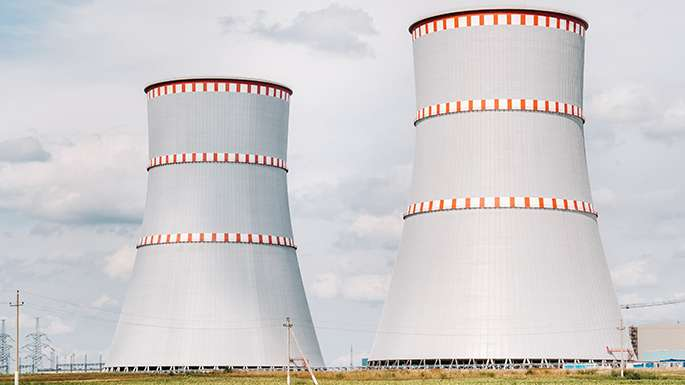The European Parliament has adopted its position on the proposed Net-Zero Industry Act (NZIA), which is intended to bolster Europe's manufacturing output in technologies needed for decarbonisation. MEPs included nuclear fission and fusion among a list of 17 technologies covered by the legislation.
The NZIA - proposed by the European Commission in March - sets a target for Europe to produce 40% of its annual deployment needs in net-zero technologies by 2030 and to capture 25% of the global market value for these technologies. The legislation - part of the EU's Green Deal Industrial Plan and seen as a response to the USA's Inflation Reduction Act - also intends to deal with the challenges in scaling up manufacturing capacities in these technologies.
In their amendments, MEPs broadened the scope of the draft legislation to encompass the entire supply chain, including components, materials and machinery for producing net-zero technologies. They propose a wider, more comprehensive list of 17 technologies to be covered, to be updated periodically. Notably, MEPs included nuclear fission and fusion technologies, sustainable aviation fuels and specific industrial technologies.
Nuclear had only partially been included in the commission's proposal for NZIA. Among the 10 technologies it proposed was "advanced technologies to produce energy from nuclear processes with minimal waste from the fuel cycle, small modular reactors, and related best-in-class fuels".
The law retains two project classifications: net-zero technology manufacturing projects and net-zero strategic projects. It also aims to streamline the permitting process, setting a timeline of 9-12 months for regular projects and 6-9 months for strategic projects to be authorised.
The legislation would earmark funding from national Emission Trading System revenues and for most strategic projects through the Strategic Technologies for Europe Platform, a step towards a European Sovereignty fund, MEPs say.
The legislation was adopted on 21 November with 376 votes to 139, with 116 abstentions.
"With the adoption of this proposal, MEPs are showing they are serious about making Europe fit for industrial manufacturing," said lead MEP Christian Ehler of the European People's Party. "Without these steps to reduce the administrative burden, speed up processes, and increased public investment in our industry and innovation, Europe would face decarbonisation by deindustrialisation. This proposal shows we can prevent this."
The proposed NZIA will now be forwarded to EU member states in the Council of Ministers for talks in early December to finalise the law. [emp]




